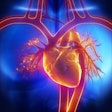
In a large study, levels of an inflammation biomarker seen in a one-time blood test of young Swedish army recruits correlated with cardiovascular death and cancer mortality decades later. The findings were published online September 3 in JAMA Pediatrics.
There was a significant association between erythrocyte sedimentation rate (ESR) and overall mortality, cardiovascular death, and cancer mortality decades later in the study of 106,120 male recruits, according to registry data spanning approximately 30 years in Sweden, reported Elizabeth Kantor, PhD, an epidemiologist at Memorial Sloan Kettering Cancer Center, and colleagues in a research letter.
"Results suggest that ESR among ostensibly healthy men in late adolescence marks something beyond that captured by manifested adolescent health conditions," the authors wrote. "Results demonstrate the need to better understand the role of subclinical early-life inflammation in relation to later-life health outcomes."
The study was supported by funding from Örebro University, a state academic institution in Sweden, and the U.K.'s Economic and Social Research Council.
The researchers evaluated deidentified health data for the 106,120 men, who were born between 1952 and 1956 and who had a blood test as part of their conscription into the Swedish army. At the time of the blood test, the men were ages 16 to 20 and appeared to be healthy, with no known health conditions, the authors noted.
The following definitions were used to characterize ESR:
- Low: ≤ 10 mm/h
- Moderate: > 10 to < 15 mm/h
- High: ≥ 15 mm/h
Using data available for the men through a maximum age of 57, the researchers compared health records for those with high versus low ESR. They found significant associations between high ESR and overall mortality, cancer mortality, and cardiovascular disease mortality. In addition, there were nonsignificant associations between high ESR and other causes of death, such as those related to the use of alcohol or drugs.
"In this large study, we observed inflammation during late adolescence to be positively associated with premature mortality due to cancer and [cardiovascular disease]," the authors wrote. "While the exact underlying mechanisms are unclear, inflammation has been implicated in the development of both cancer and atherosclerosis, and these data highlight the existence of detectable markers of premature mortality at an early stage of life."
One study limitation is that the researchers could not adjust for smoking. However, they noted that "smoking is not strongly associated with ESR," and other studies have adjusted for smoking and still found an association between ESR in adolescence and heart attack risk.
It's also unclear whether the results are applicable to women.



















